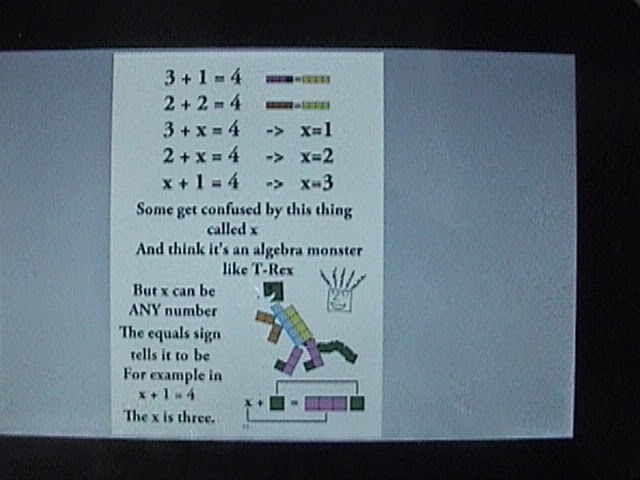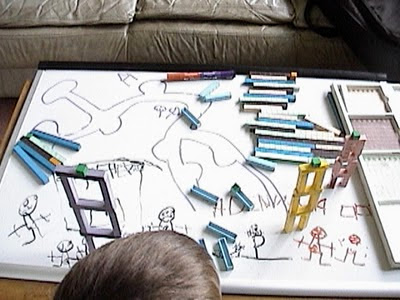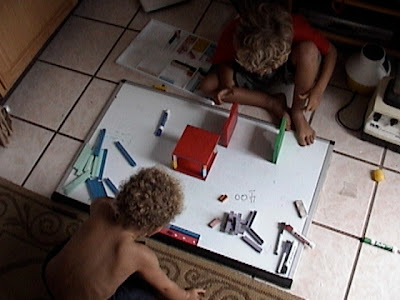Now you can get this content packed base ten block e-book: Crewton Ramones Completely Cool Curious Counters' Kindergarten Compendium for just $19.99. No need to buy a password (if you already have a password this book comes with, just go HERE and click on the picture or the big red "here.") If you don't, get this book and start learning math NOW.
No need to buy a password, now you can get the book all by itself, I'll send you the file direct to your inbox. Until now this base ten book was only available if you bought a password. now you can get this book by itself. Put it on your laptop, tablet, or reader or print it out.
As you can see it shows your younger children some crucial math concepts using base 10 blocks to make it easy. It helps you help them master their addition facts, introduces square roots, place value, multiplication and more. Give your child a head start in mathematics. This book makes understanding math concepts fast and easy. Mathematics is the gateway to scholarships, the sciences, and higher paying jobs. Get them started off right.
Read your children this book the way you would any other children's book except with this book they will learn math because base ten blocks make it visually obvious. For ages 9 and under but especially aimed at children ages 3 to 5. That's right PRESCHOOL, (even though it says kindergarten). They can see the math...take a look for yourself...and at this age you can read it to them over and over again.
Just like any language they aren't going to learn it all the first time you read it to them. They aren't going understand it all the first time but after a very few short weeks the concepts in this book will be understood because it's simply written, it almost rhymes, and it's full of pictures of base ten blocks, the same way any picture book for toddlers is.Plenty of brightly colored fun pictures explain basic math concepts, that will put your kid well ahead of their peers when they get to kindergarten or preschool. Kids that can do even just a little math at an early age are considered SMART or advanced or even geniuses whether they are or not...but one thing people have noticed over the years is that if you treat kids like they are smart they will act like they are smart. If you put kids in a class known to be advanced they will usually live up to the expectations...the opposite is also true. Put then a class in SPED or the "F Troop" they will often live up (or down) to the lowered expectations.
I have been in plenty of second grade classrooms where many of the students don't know their addends for ten without thinking about it or using their fingers. Some of these kids have to think about it when asked what does five need to be ten?! Base ten blocks help get them off their fingers and into math.
So yeah, it's kind of important. And it has been my experience that even if they hit third grade and they don't know their addends teachers don't usually take these kids aside and give them the extra help and time they need to master them. A downward spiral often ensues as these children never learn to add single digit numbers easily, then adding them over and over again (multiplication) becomes difficult and then they try to circumvent this with memorization of multiplication tables via worksheet and flash cards. Then long division is HARD and hated, fractions are poorly understood and mathematics in general becomes PAIN. Sound familiar? Statistically more of you had a poor experience with math than a good one which is usually part of the reason you found your way here.
The homeschool market is growing by leaps and bounds and many of those parents HATE MATH, but are smart enough to understand they need break the cycle...but don't really know how. Plenty of homeschool moms know they suck at math and are concerned they won't be able to teach their children math because they can't do math...well I'm here to show how you can both learn math together. This book is a good start. Lots of teachers are also using this book to help them introduce math to their young students.
This book
Makes math fast, fun and EZ.
Concept based.
Builds a firm foundation in addition facts.
Shows them how to add numbers with ease.
Gives a leg up on Addition/Addends
Builds a firm foundation in addition facts.
Shows them how to add numbers with ease.
Gives a leg up on Addition/Addends
Introduces Square Roots
Problem Solving
Place Value
Multiplication
“My kids love this book.”
“Added to our bedtime stories, now they ask for it!”
“I like it because it makes math easy for them to understand because they can see it.”
“We started out counting and before you know it he was doing some pretty impressive math for a 5 year old.”
More pics and stuff:
“I like it because it makes math easy for them to understand because they can see it.”
“We started out counting and before you know it he was doing some pretty impressive math for a 5 year old.”
More pics and stuff:
Crewton Ramone's Completely Cool Curious Counters' Kindergarten Compendium at the house of math. If you click this link you'll need a password to get it...remember the book is included with a password this page was built for those who just want the book.
Crewton Ramone's Completely Cool Curious Counters' Kindergarten Compendium here on blogger. Again this page will direct you to a password protected page. If you just want the book order below. Please allow up to 12 hours for delivery...I will email you the actual pdf. The email you use for paypal is the email I will use unless otherwise specified. No messing with pop ups or download buttons unless you want to. [Haven't built the pop up page yet so...] But you will have to check your email...if you want to me to send it to an email other than the one you used for paypal put in the box.Here is a short explanation of the options. Remember if you have a Life Time Pass, the book is INCLUDED, this page was built by request for those that just want the book and only the book...but of course I added extra options to the button just in case you decided to do a little math and figure out getting the book by itself might not be the best option. Also by now there are people who have gotten an annual password two or more times...and every time they get a new one there's even more stuff than the last time...and their kids are still little. Probably should have gotten a lifetime pass. This button will change soon because the $15.00 price for the PT training is limited to the first 50 paid.
...OF COURSE WITH THE LIFETIME PASS YOU GET BOTH PASSWORDS.
Learn to use your base ten blocks.














































